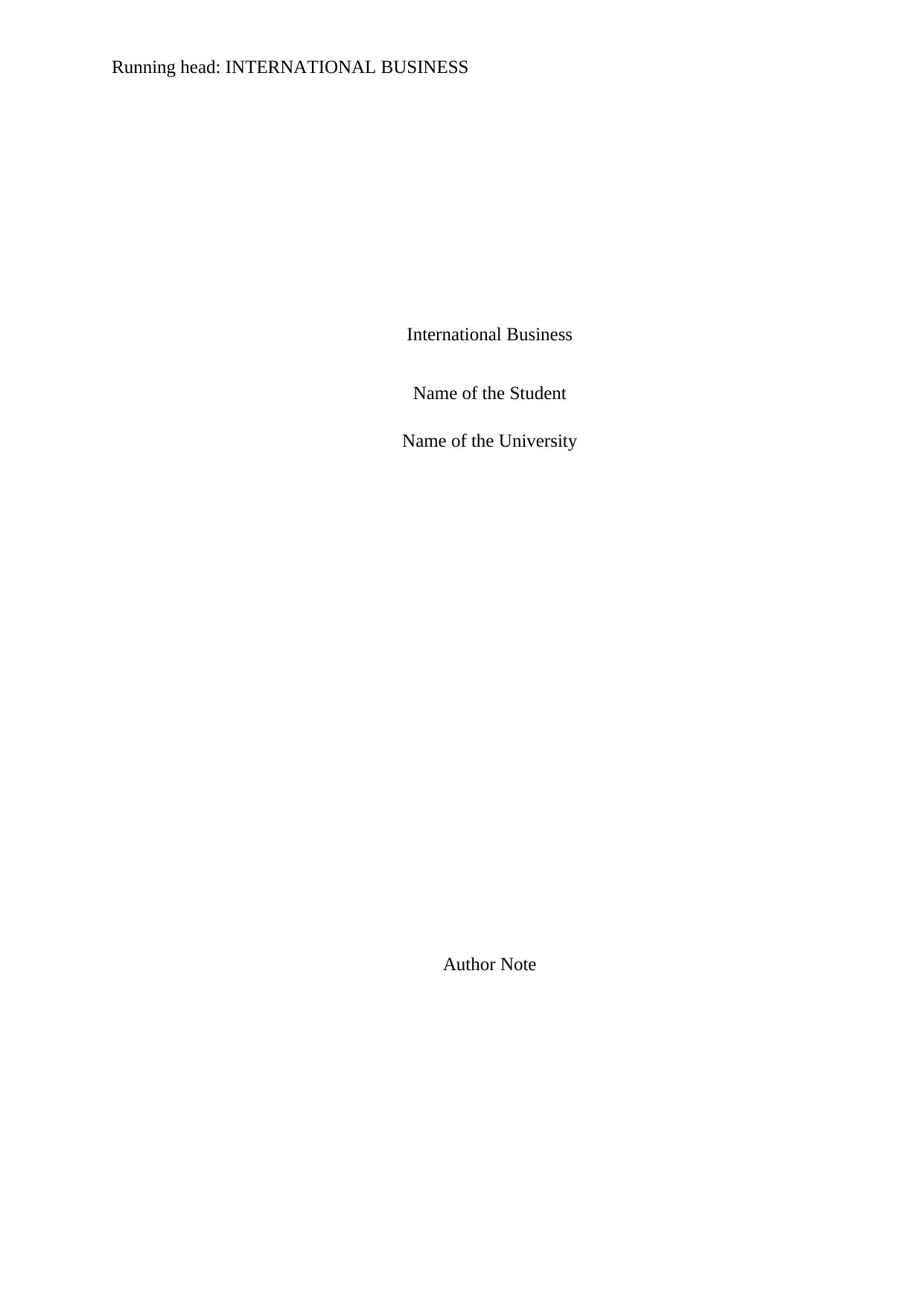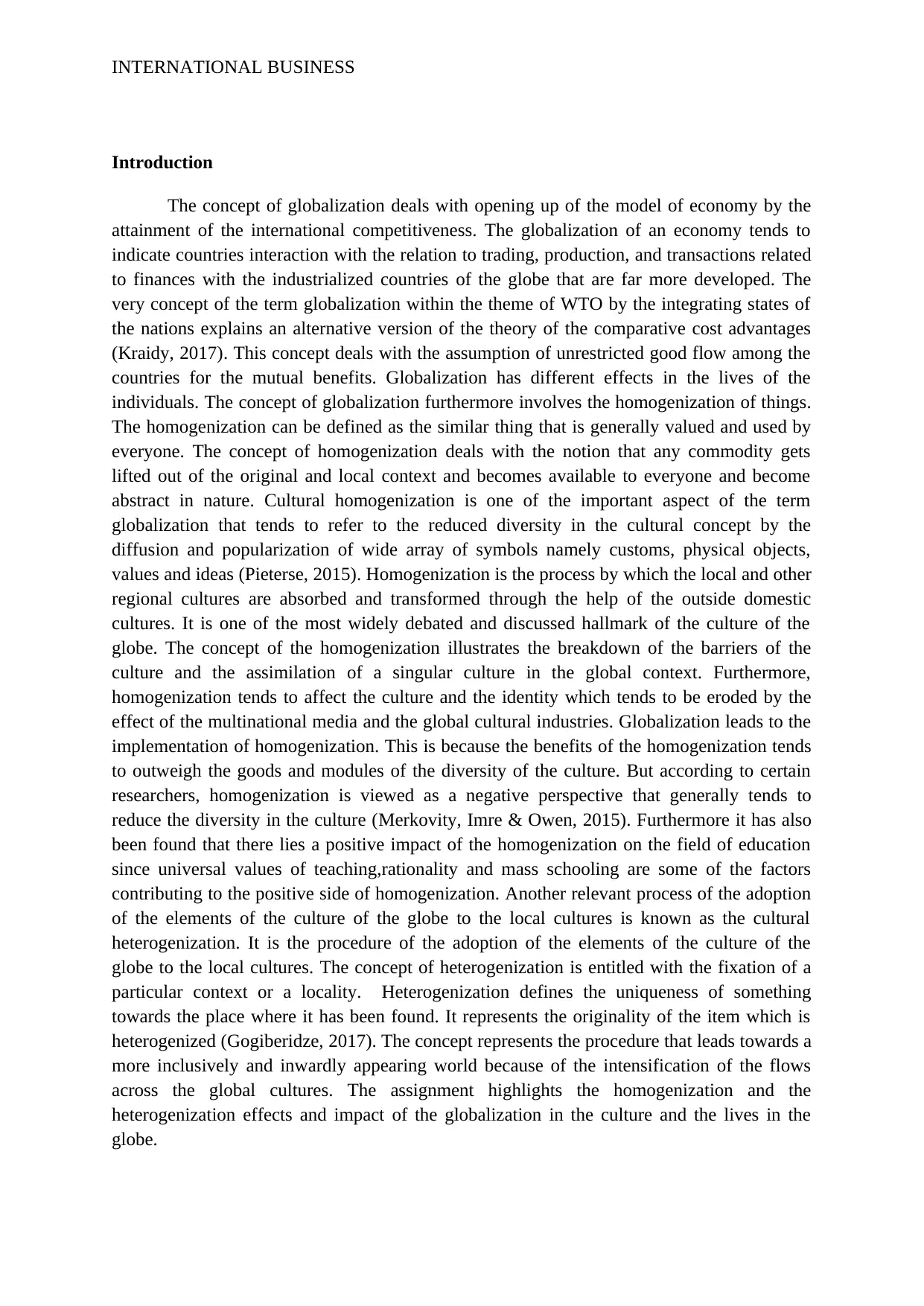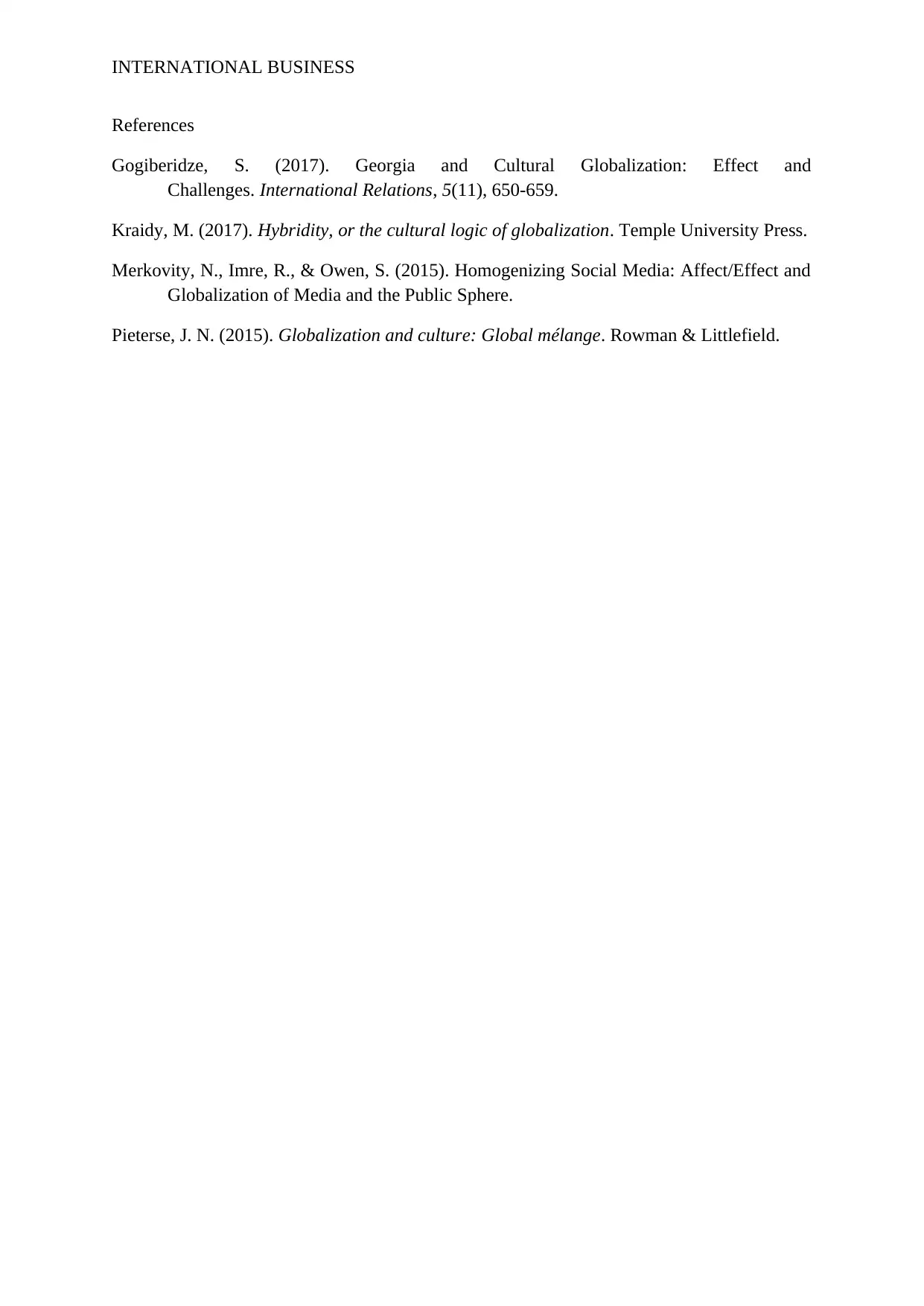Globalization's Impact: Homogenization vs Heterogenization in Business
VerifiedAdded on 2023/06/11
|3
|700
|362
Essay
AI Summary
This essay delves into the concepts of homogenization and heterogenization within the context of globalization and international business. It defines globalization as the opening up of economies through international competitiveness and discusses its effects on individuals, including cultural homogenization. The essay explains homogenization as the process by which local cultures are absorbed into a singular global culture, while heterogenization refers to the adoption of global cultural elements into local contexts, emphasizing uniqueness and originality. It further explores both the positive and negative impacts of homogenization, particularly in education, and highlights how heterogenization leads to a more inclusive world. The essay concludes by emphasizing the impact of these processes on culture and identity in the context of international business.
1 out of 3









![[object Object]](/_next/static/media/star-bottom.7253800d.svg)